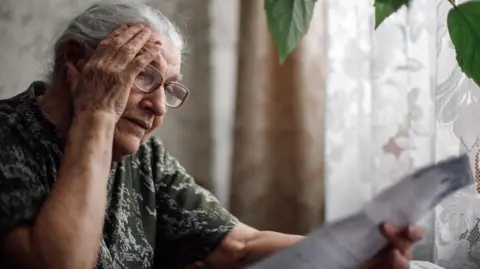In a recent declaration, UK Chancellor Rachel Reeves has confirmed a significant shift in the policy regarding winter fuel payments, marking a pivotal turn in the government’s approach to financial assistance for its citizens. The announcement came on June 4, 2025, when Reeves stated that a greater number of individuals would qualify for the winter fuel payment this year. However, specifics surrounding how these changes will be implemented and which demographics will be entitled remain somewhat nebulous.
This update follows an earlier statement from Prime Minister Sir Keir Starmer, who expressed the necessity of broadening the eligibility criteria for winter fuel payments. This move marks a notable reversal of one of the Labour government’s initial policies after their electoral win last year. The winter fuel payment, which supports individuals with energy costs during the colder months, had only been extended to those on pension credit during the previous winter, significantly limiting the number of recipients.
The previous restrictions restricted approximately 10 million pensioners from receiving the vital assistance in 2024. Advocates and various charity organizations raised alarms over individuals whose incomes were marginally above the eligibility threshold yet felt the financial strain of rising energy prices. Reeves reinforced the idea that with the adjustments, more individuals would qualify for the winter fuel payment, suggesting that the means-testing parameters would be expanded.
In articulating the necessity of broadening eligibility, Reeves asserted: “People should be in no doubt that the means test will increase and more people will get winter fuel payment this winter.” This commitment to reform signifies an understanding of the pressing financial impacts of energy costs on ordinary citizens, particularly the elderly demographic, for whom these payments are crucial for maintaining warmth in their homes during winter months.
The Labour government’s decision to implement a means-testing approach had generated dissatisfaction, evidenced by their poor performance in recent local elections, which many commentators attributed to public discontent with inadequate support mechanisms. With an emphasis on increasing the number of eligible recipients for the winter fuel payment, the government has signalled a shift towards a more inclusive approach that seeks to alleviate some of the pressure facing families during the winter months.
Despite the progress outlined in this policy adjustment, advertisements surrounding it remain tentative. Pensions Minister Torsten Bell remarked during discussions with Members of Parliament that there would not be a complete return to the previous system that granted payments to all pensioners irrespective of income levels. Bell underscored the importance of not providing large payments to wealthy individuals, advocating instead for a recalibrated system where more pensioners could receive assistance without reverting entirely to the previous universal payment structure.
With significant discussions anticipated in the autumn regarding further implementations of this new policy, details surrounding the eligibility criteria might not be clarified until later in the year. Sir Keir himself acknowledged in recent interviews the pressing need for clarity in communication around these changes.
Furthermore, the upcoming government spending review, scheduled for June 11, is expected to provide additional context to this relief strategy and its fiscal implications, although insiders have warned that the process could be less than straightforward. The review will detail departmental budgets over the next three years and clarify the government’s investment priorities, signaling potential cuts in areas that may not meet the government’s evolving fiscal policies.
In summary, the announcements surrounding winter fuel payments indicate a responsive and adaptive government approach necessitated by public feedback. With significant changes anticipated and a focus on ensuring that vulnerable populations receive adequate support, Rachel Reeves and her team have begun to reshape how the government interacts with its citizens concerning essential financial aid, specifically through energy cost assistance as winter approaches. The coming months will be crucial as the government unveils more details about its intentions and mechanisms for implementing these changes.











